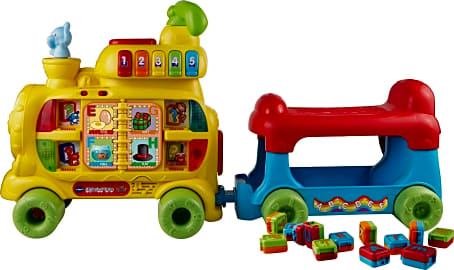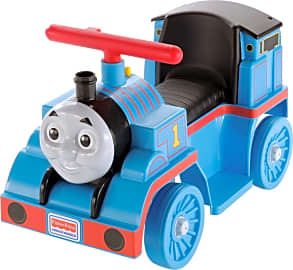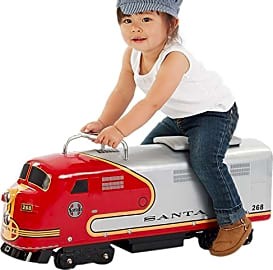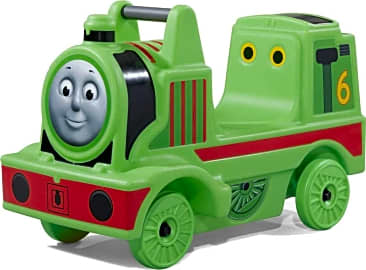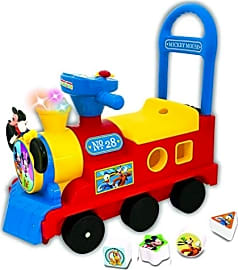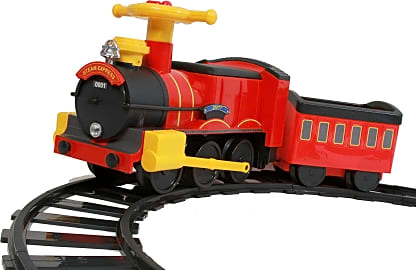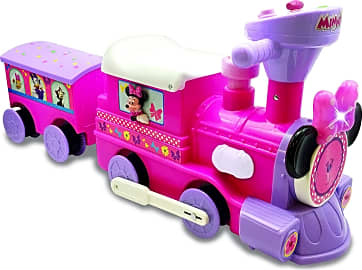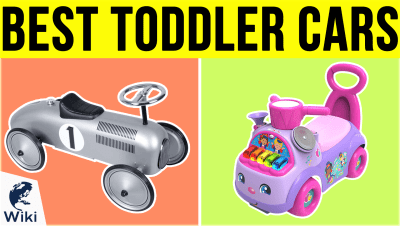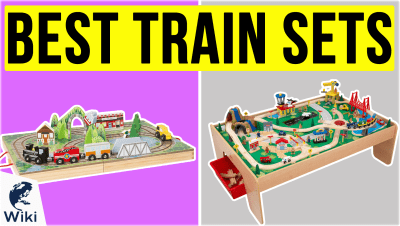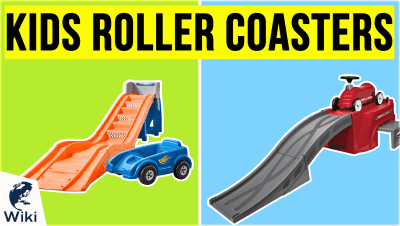The 8 Best Riding Trains

This wiki has been updated 42 times since it was first published in September of 2015. Put your child in the middle of the railroad action with one of these super-sized riding trains. They include interactive features that help develop early motor skills, and some even come with several feet of track that can be placed on either hard floors or carpeting for fun in any room. For safety’s sake, adhere to the manufacturer’s age guidelines and supervise kids closely during use. When users buy our independently chosen editorial recommendations, we may earn commissions to help fund the Wiki.
Editor's Notes
March 19, 2020:
In this update, we added in the Peg Perego Lionel Lines, which features realistic elements like sticker gauges, a pretend load of coal on the back, and electronic engine sound effects. Kids can ride on hard floors as well as the included 12-piece track, and no manual steering is required on the track. It can support kids up to 40 pounds in weight, and is powered by a 6-volt rechargeable battery. It replaces the Santa Fe from the same manufacturer, which is unavailable at this time.
The newly added Step2 Percy features a friendly face many children are familiar with, which is that of Thomas the Tank Engine’s mail delivering pal, Percy. It’s made in the USA and sports the character’s trademark vibrant green color, along with some detailed decals. It’s made with both comfort and safety in mind, with a high back, an easy-grip handrail, and footrests. It can be used by itself on hard floors or with the roller coaster playset sold separately from the manufacturer.
We added the Disney Play ‘n Sort because it incorporates plenty of interactive features that are both fun and provide lots of learning opportunities. Its special effects include flashing lights, lively music, and whistle sounds. When they’re not busy riding, kids can have fun inserting the colorful triangle, circle, star, and square into the corresponding slots on the engine. It comes with a rear handle that keeps kids safely in place and also can be used for parents to push it. You can choose either a Mickey or a Minnie theme, and both feature a fun assortment of bright colors. It replaces the National 6V Talking, which contains small parts and is not for children under 3 years of age.
For safety’s sake, adhere to the manufacturer’s age guidelines, as some are suitable for those as young as 12 months, whereas others aren’t made for kids younger than 2 years of age. To prevent accidents and ensure a safe and fun playtime, always supervise children closely during use.
If your tot is ready for another set of wheels, check out or lists of best toddler cars and best push cars for toddlers.
Special Honors
Electric C.P. Huntington Train When you’re looking to add an eco-friendly, low-maintenance ride to your amusement park, shopping center, or other establishment, look to this zero-emissions, battery-powered train. It runs on lithium-ion batteries and features automatic in-station charging. It features AC electric motors, regenerative braking, and traction control, and offers convenient programmable operation. It serves as a quick, efficient means of moving people and can also be a source of revenue. chancerides.com
How To Encourage A Child's Love Of Trains
This is especially true if a parent finds little ways to make that riding train more fun.
A riding train can provide a child with countless hours of enjoyment. This is especially true if a parent finds little ways to make that riding train more fun. This could mean high-fiving a toddler each time his or her train circles the tracks, or it could mean buying him or her an engineer's hat along with a pinstriped pair of pajamas to match.
As a child begins to outgrow the toddler stage, you can encourage his or her interest in locomotives by way of coloring books, online videos, and, of course, Thomas the Train. Assuming the riding train you own doesn't need to be on a track, your child can start to take it for supervised rides around the block or to the park, and you can even take it along on vacations.
If you own a model train set, you can use it to teach your child about the mechanisms of a railway or a caboose. As the child begins to develop, it may be worth planning a trip to an actual train museum, a historic train station, or a local switch yard (assuming that you can get in).
Under ideal circumstances, there's no substitute for the real thing, which is why you may want to book a passage with your child along one of numerous regional rail lines. Boarding a coach will provide your child with an opportunity to see some wide-open country and you may be able to request a brief tour inside the locomotive's power car before it's all done.
Several Safety Tips For Owning A Riding Train
As a parent, you want your child to enjoy all of the benefits a riding train has to offer. That being the case, it's best to review a number of safety measures before your child climbs on board. Obviously, you never want your child to operate a riding train while barefoot, nor do you want your child to operate a train with untied sneakers or open-toe shoes (as any one of these scenarios can result in an injury). In addition, you want to caution your child against placing any fingers or other appendages near the riding train's wheels (or gears), regardless of whether the train itself happens to be in motion.
If your child's train includes any detachable pieces, you'll want to maintain close supervision to ensure he doesn't try to put the pieces into his mouth. In addition, make sure the train's path is clear of other household items - including toys or pets - as any obstruction could lead to damage, injuries, or worse.
Take heed of whether the train's instruction manual mentions any type of weight capacity or other restrictions, and be mindful not to let your child try to cram multiple passengers onto a one-person caboose. If the train comes with its own set of tracks, it's best to store those tracks in a place where they cannot be stepped on or trampled whenever the train isn't in use.
How The Train Became A Toy
The idea of railed transport - that is, conveying people or goods in wheeled vehicles along a guided track - dates back to ancient Greece and Rome. The earliest rail routes were known as wagonways, and were outfitted with raised wooden beams, any pair of which enabled cargo to be wheeled above loose terrain. Innovations in railed transport eventually led to the mining cart, the two-man rail cart, and several other means of delivering freight across vast distances.
These models were intricate, but immovable, and were designed to be sold as collector's items.
The first modern railways were designed during the 17th century. These railways differed from the wagonways in that they used a flange or a projecting rim to attach every vehicle's wheels onto a track. As the first iron rail systems began to emerge, they signaled the possibility for cheaper production, a public transportation system, and perhaps even a continental rail line.
During the 1800s, artisans took to capitalizing on the public's fascination with trains by constructing tiny scale models of box cars, locomotives, and coaches. These models were intricate, but immovable, and were designed to be sold as collector's items. That trend began to change, however, after a German doll house manufacturer went into production on a line of rolling model trains that were meant to cater as much to children as they were to adults.
Thanks to the Industrial Revolution, items made from tin and metal became less expensive to produce, allowing for low-cost model train sets to be built. The arrival of electric toy trains provided enthusiasts with an opportunity to design their own miniature railways, complete with lighting, scale-model buildings, plastic mountains, and more. Electric toy cabooses provided the additional capability to have an engine car whistle, blow smoke, and choo-choo.
Throughout the first half of the 20th century, miniature trains were designed according to three basic categories: pull toys or wind-ups (for children), model trains (for adolescents), and elaborate collector sets (for adults). Children's train sales dropped off significantly after the 1960s, only to rebound during the Clinton era. This was mostly due to a fictional blue caboose named Thomas the Tank Engine. Thomas broke big in the United Kingdom before being re-branded as Thomas the Train and then storming the United States and beyond.


